26 start with Y start with Y

Finalist, 2018 Miller Williams Poetry Prize
Ya Te Veo takes as its title the name of a mythical tree that eats people. Like the branches of that tree, the poems in this book seem to capture and nourish themselves on a diverse cast of would-be passers-by, drawing their life-force from the resulting synthesis of characters. Among the seized are poets and painters alongside musicians from Garth Brooks to Wu-Tang Clan to the composer Morton Feldman, whose mysterious personality serves as a backdrop in many poems for meditations on intimacy, ethics, and anxiety.
As the phrase “ya te veo” (“I see you”) implies, this is a book interested in revealing what we think is hidden, in questioning the gap inside all of us, a gap between what we feel and what we say and do, making space for our many contradictions.
Like the works of Feldman, these poems focus and recede, experimenting with form in order to accomplish a state of deep concentration. They impersonate sonnets, ghazals, terza rima, monologues, translations, and freestyles, but inexactly, embracing failed imitation as an opportunity to remix the familiar.

The son of a Paraguayan father and a mother from Pennsylvania, Báez grew up in central Illinois as one of the only brown kids on the block—but that didn’t keep him from feeling like a gringo on family visits to Paraguay. Exploring this contradiction as it weaves through experiences of language, self, and place, Báez revels in showing up the absurdities of empire and chafes at the limits of patrimony, but he always reserves his most trenchant irony for the gaze he turns on himself.
Notably, this raucous collection also wrestles with Guaraní, a state-recognized Indigenous language widely spoken in Paraguay. Guaraní both structures and punctures the book, surfacing in a sequence of jokes that double as poems, and introducing but leaving unresolved ambient questions about local histories of militarism, masculine bravado, and the outlook of the campos. Cutting across borders of every kind, Báez’s poems attempt to reconcile the incomplete, contradictory, and inconsistent experiences of a speaking self that resides between languages, nations, and generations.
Yaguareté White is a lyrical exploration of Paraguayan American identity and what it means to see through a colored whiteness in all of its tangled contradictions.
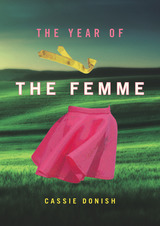
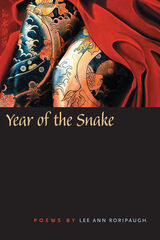
In her second collection of poems, Lee Ann Roripaugh probes themes of mixed-race female identities, evoking the molting processes of snakes and insects who shed their skins and shells as an ongoing metaphor for transformation of self. Intertwining contemporary renditions of traditional Japanese myths and fairy tales with poems that explore the landscape of childhood and early adolescence, she blurs the boundaries between myth and memory, between real and imagined selves. This collection explores cultural, psychological, and physical liminalities and exposes the diasporic arc cast by first-generation Asian American mothers and their second-generation daughters, revealing a desire for metamorphosis of self through time, geography, culture, and myth.

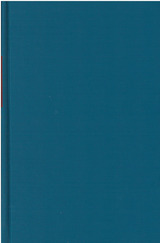




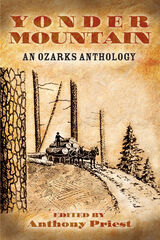

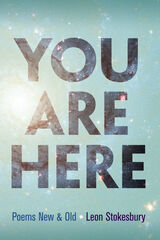
Winnowed from a distinguished career, then distilled, then polished and winnowed again, the poems in You Are Here are Leon Stokesbury’s best from fifty years of published work.
The selections from his earlier volumes are as fully realized as one would expect from the winner of the AWP Poetry Competition and the Poets’ Prize. But it is in Stokesbury’s new work, collected under the heading “These Days,” that he reveals something completely different. From a carnival sideshow to Hitchcock’s Mount Rushmore, from John Keats’s backyard to the miseries of a failed crematorium operator, every turned page divulges a particular we didn’t see coming. You Are Here is like a sideshow of this modern world, even when we discover, amazed, our selves looking back at us.
“Why do we still only stand here?” Stokesbury asks in one of his earliest salvos. The poems in this collection give such varied answers that readers will have no idea what the next page holds, only that they will find themselves somewhere new.
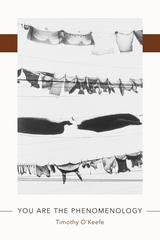
One of the volume's innovative forms is a poetic series called "Quadrilaterals"—four-line poems that present the reader with various ways to leap associative gaps:
Quadrilateral : Pinch in Your Heel
Soars the mackled sound, kites ago :
A Polish boy thinks with accordions, adopts a stammer :
When were we first older than we wanted to be :
That was our city, our chisel, the corbeil from which we ate.

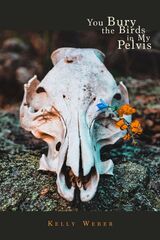
Set against a rural plains landscape of gas stations, wind, and roadkill bones littering the highways, You Bury the Birds in My Pelvis is a love letter to the nonbinary body as a site of both queer platonic intimacy and chronic illness. Looking at art and friendship, Kelly Weber’s poems imagine alternatives to x-rays, pathologizing medical settings, and other forms of harm. Considering the meeting place of radiological light and sunlit meadows, the asexual speaker’s body, and fox skeletons, these poems imagine possible forms of love. With the body caught in medical crisis and ecological catastrophe, Weber questions how to create a poetry fashioned both despite and out of endings.
You Bury the Birds in My Pelvis explores forms with plainspoken prose poems with a mix of short poems and longer lyric sections that navigate insurance systems and complicated rural relationships to queerness.
You Bury the Birds in My Pelvis is the winner of the 2022 Omnidawn 1st/2nd Poetry Book Contest, chosen by Mary Jo Bang.

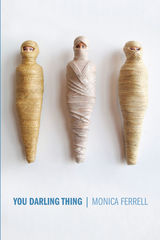
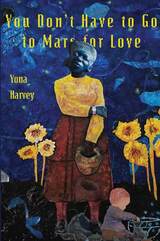

For thirty years poet Jana Harris researched the diaries and letters of North American pioneer women. While the names and experiences of the authors varied, Harris found one story often connected them: their most powerful memories were of courtships and weddings. They dreamed of having a fine wedding while they spent their lives hauling water, scrubbing floors, and hoping for admirers. Many married men they hardly knew.
Based on primary research of nineteenth-century frontier women, Harris uses her compelling poetry to resurrect a forgotten history. She captures the hope, anxiety, anger, and despair of these women through a variety of characters and poetic strategies, while archival photographs give faces to the names and details to the settings. Harris’s meticulous research and stirring words give these pioneer women a renewed voice that proves the timelessness of the hopes and fears of love and marriage.


Anna Akhmatova lived through pre-revolution Russia, Bolshevism, and Stalinism. Throughout it all, she maintained an elegant, muscular style that could grab a reader by the throat at a moment’s notice. Defined by tragedy and beauty in equal measure, her poems take on romantic frustration and the pull of the sensory, and find power in the mundane. Above all, she believed that a Russian poet could only produce poetry in Russia.
You Will Hear Thunder spans Akhmatova’s very early career into the early 1960s. These poems were written through her bohemian prerevolution days, her many marriages, the terror and privation of life under Stalin, and her later years, during which she saw her work once again recognized by the Soviet state. Intricately observed and unwavering in their emotional immediacy, these strikingly modern poems represent one of the twentieth century’s most powerful voices.

Anna Akhmatova (1889–1966) was part of that magnificent and in many ways tragic generation of Russian artists which came to first maturity before 1917, and which then had to come to terms with official discouragement and often persecution. As D.M. Thomas points out in his introduction, practically none of her poetry was published between 1923 and 1940. Her poetic range was wide, from the transparent anonymity of “Requiem” to the symphonic complexity of “Poem without a Hero.” She was revered and loved not only by the best of her fellow poets but by the ordinary people of Russia: five thousand mourners, mostly the young, crowded to her requiem mass in a Leningrad church.
You Will Hear Thunder brings together for the first time all D.M. Thomas’s translations of Anna Akhmatova’s poems. They were very highly praised on their separate appearances in 1976 and 1979. John Bayley called them “a mastery achievement,” and said of Thomas that “he has profound reverence and affection for the original;” while Donald David wrote that Thomas’s translation was “The first version to explain to me why Akhmatova was so much esteemed by those great poets, Pasternak and Mandelstam and Tsvetaeva.” It is good to have these powerful, noble and compassionate poems in one set of covers.

---Nicholas Coles, University of Pittsburgh
---Alan Wald, University of Michigan
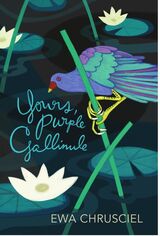
Ewa Chrusciel’s fourth book in English, Yours, Purple Gallinule, playfully explores health and illness as they are culturally constructed. Using research into clinical understandings of mental afflictions and their treatments through history, Chrusciel maps various diagnostics onto an array of bird species. A lyrical satire, the book is a reflection on a society that tends to over-diagnose, misdiagnose, and over-medicate. These poems pose questions about what it means to be unique and to accept pain and suffering as a fact of life.
On the pages of Yours, Purple Gallinule, we encounter birds, a poet, and a psychiatrist. The psychiatrist undergoes a series of conversions as she realizes that the point is not to classify thoughtlessly, but to “make music instead”—to dwell in astonishment. Birds evade the anthropomorphizing intentions of the human protagonists as the psychiatrist and the poet eventually become one. The anthropomorphizing goes in reverse, and the human being becomes more avian. Like the dove in the biblical Noah’s ark story, the bird proclaims a new covenant, with a twig in its beak and a message: “We are all mad; some more than others, but no one is spared the affliction. And the madder we are, the more sacred.”

READERS
Browse our collection.
PUBLISHERS
See BiblioVault's publisher services.
STUDENT SERVICES
Files for college accessibility offices.
UChicago Accessibility Resources
home | accessibility | search | about | contact us
BiblioVault ® 2001 - 2024
The University of Chicago Press









